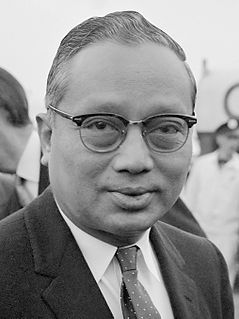A Quote by U Thant
I am afraid if the present trend in Vietnam continues that direct confrontation, first of all between Washington and Peking, is inevitable.
Quote Topics
Related Quotes
Most of us who were opposed to the war, especially in the early '60's - the war we were opposed to was the war on South Vietnam which destroyed South Vietnam's rural society. The South was devastated. But now anyone who opposed this atrocity is regarded as having defended North Vietnam. And that's part of the effort to present the war as if it were a war between South Vietnam and North Vietnam with the United States helping the South. Of course it's fabrication. But it's "official truth" now.
I sympathize the first, the direct and single-minded attack [Red Revolution]. I believe it to have been necessary and inevitable in Russia. It may someday be inevitable in this country [United States of America]. I am not seriously alarmed by the sufferings of the creditor class, the troubles which the church is bound to encounter, the restrictions on certain kinds of freedom which must result, nor even by the bloodshed of the transition period. A better economic order is worth a little bloodshed.
Why was the United States so afraid of an independent South Vietnam? Well, I think the reason again is pretty clear from the internal government documents. Precisely what they were afraid of was that the "takeover" of South Vietnam by nationalist forces would not be brutal. They feared it would be conciliatory and that there would be successful social and economic development - and that the whole region might work.









































